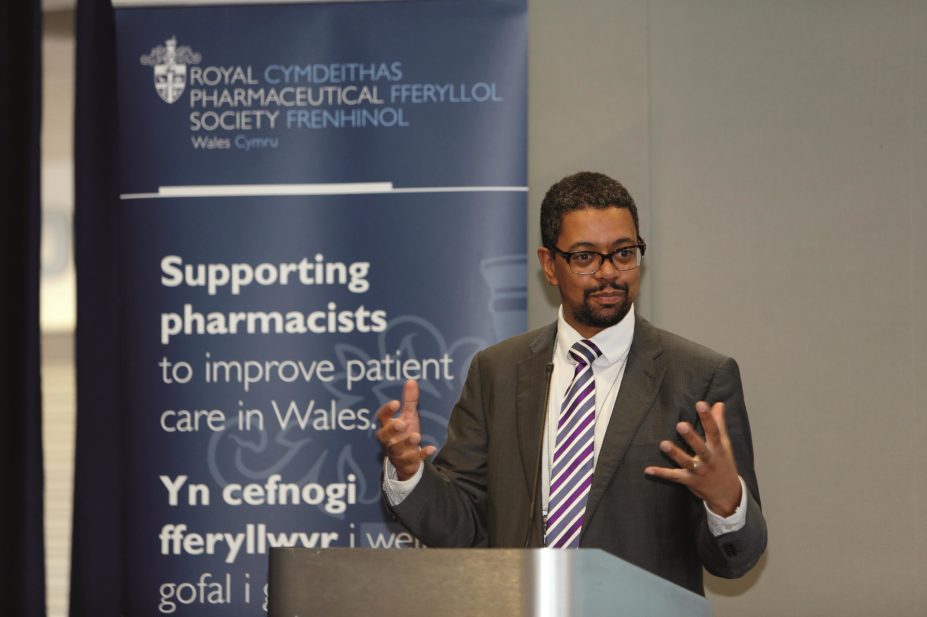
Nick Treharne
In the future, the community pharmacy contractual framework in Wales will place an increased emphasis on improving medication safety and service quality, Vaughan Gething, the Welsh cabinet secretary for health, well-being and sport, told the Royal Pharmaceutical Society (RPS) Wales’ 6th Medicines Safety Conference in Cardiff on 3 November 2016.
“[Wales is] not following the decision made in England [regarding pharmacy cuts], but maintaining funding and taking a different approach will require community pharmacy in Wales to adapt and deliver a pharmacy service that has a provision of a clinical service and a commitment to improving safety and quality at its centre.
“It’s about doing different things rather than doing some things differently,” he added, saying that changes will be instigated from the next financial year, starting in April 2017.
Gething also told delegates that pharmacists have been at the forefront of efforts to improve medication safety in Wales, which have been recognised across the UK.
As part of this he drew on the number of pharmacists now working in GP practices across Wales; the “great strides” that have been made in reporting suspected adverse drug reactions through the Medicines Healthcare and Regulatory products Agency’s (MHRA) Yellow Care scheme; and the government’s investment in the Choose Pharmacy scheme, a minor ailments service for adults and children in Wales, which is due to be rolled out to over half of pharmacies in Wales by March 2018.
“Choose Pharmacy could help reengineer services given to communities by enhancing patient safety by improving the quality and timeliness of the transfer of information in the health service,” he said.
Gething also acknowledged that pharmacists in Wales still need access to the GP record and assured delegates that “it is going to happen”.
However, he said that in order to progress further in terms of quality and effectiveness it is imperative that National Prescribing Indicators (NPIs), for example, for non-steroidal anti-inflammatory drugs (NSAIDs), remain relevant. “It is important we don’t get stuck in doing something that doesn’t make sense,” he said. “I would encourage at this stage in the [Welsh] Assembly to have a look again to make sure that [the NPIs] are still relevant and if there is a conversation to be had about change it can be made in the next year or so.”
Finally, Gething welcomed the RPS’ new campaign on long-term conditions, which was launched at the same event. “[I’m] pleased to see the RPS is stepping up to the plate and I will be considering how [the] Welsh Government might support the aspirations in the document,” he said.
- This article was amended on 1 December 2016 to correct an error.
You may also be interested in
Long service of members

Membership fees 2022
